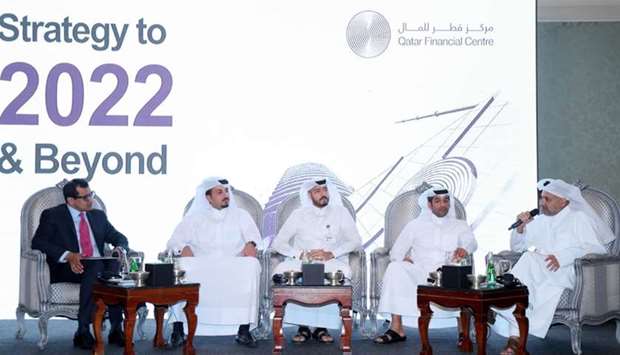The Qatar Financial Centre (QFC) has unveiled its new multi-pronged strategy, focusing on new clusters such as digital, sports and financial services as part of enhancing its contribution to the local economy.
Moreover, it is eyeing Islamic finance’s global coverage through Qatar, Turkey and Malaysia hubs, QFC Authority chief executive Yousuf Mohamed al-Jaida said in Doha while unveiling its strategies beyond 2022.
The QFC’s focus on the digital, media sports and financial service industries is aligned with Qatar’s existing positioning in those fields. The QFC is also working very closely with Qatar Development Bank to advance the country’s national fintech agenda.
In the sports industry alone, Qatar has already established world-class infrastructure, thanks to robust investments, and has leveraged this by hosting international sporting events, which are set to bring even more economic impetus, with the sports industry estimated to be valued at $20bn by 2023.
The QFC is aiming to attract sport consultancy and advisory, sport legal advisory, sort financing and contracting, sport event management and promotion, sport technology companies. Start-up Bootcamp is already a QFC client of sport marketing and commercialisation), and sport education.
"Investing in the sports sector is one of the pillars of our strategy at Aspire Zone Foundation. The QFC's focus on sports and other important sectors underscores the growth potential of these industries in Qatar and internationally," according to Ali al-Mutawaa, chief of enterprise and development officer, Aspire Zone Foundation.
The QFC has already made progress towards developing this fast-growing sector and in 2018 signed a memorandum of understanding with Aspire Zone Foundation to establish the Qatar Sports Business District, Qatar’s sports accelerator, which is considered the first in the region and expected to attract multinational corporations by offering world-class services and incentives.
On Islamic finance, the QFC has a vision to cover the entire globe’s Islamic financial transactions (estimated at $2tn) through the three financial centres: Qatar, Turkey and Malaysia.
"Under the plan, Turkey would cover Islamic finance needs in Europe, Qatar would serve the greater Middle East and Malaysia would cater to Asia," al-Jaida said, adding this plan is still in its early stages and discussions are still ongoing so more details could be shared once it is finalised.
Outlining the QFC’s strategy that focus on new clusters, he said, “We have identified significant opportunities for growth in these industries and we are confident that the QFC’s unique platform is well-equipped to provide the necessary framework to attract foreign investors in these sectors.”
The QFC is looking to become a gateway for international financial institutions and capital markets, provide funding for large scale government projects and the private sector in Qatar through international firms, foster financing via capital markets and alternative debt solutions, facilitating public private partnerships (PPPs) with private sector firms to support the government in financing (large-scale) projects.

From left: Kamahl Santamaria (Al Jazeera English); Faisal Ibrahim al-Malki, director, projects management, Msheireb Properties; Ibrahim Mohamed Hassan, executive director of investments at QDB; al-Mutawaa and al-Jaida at the QFC meet to unveil strategies beyond 2022.

